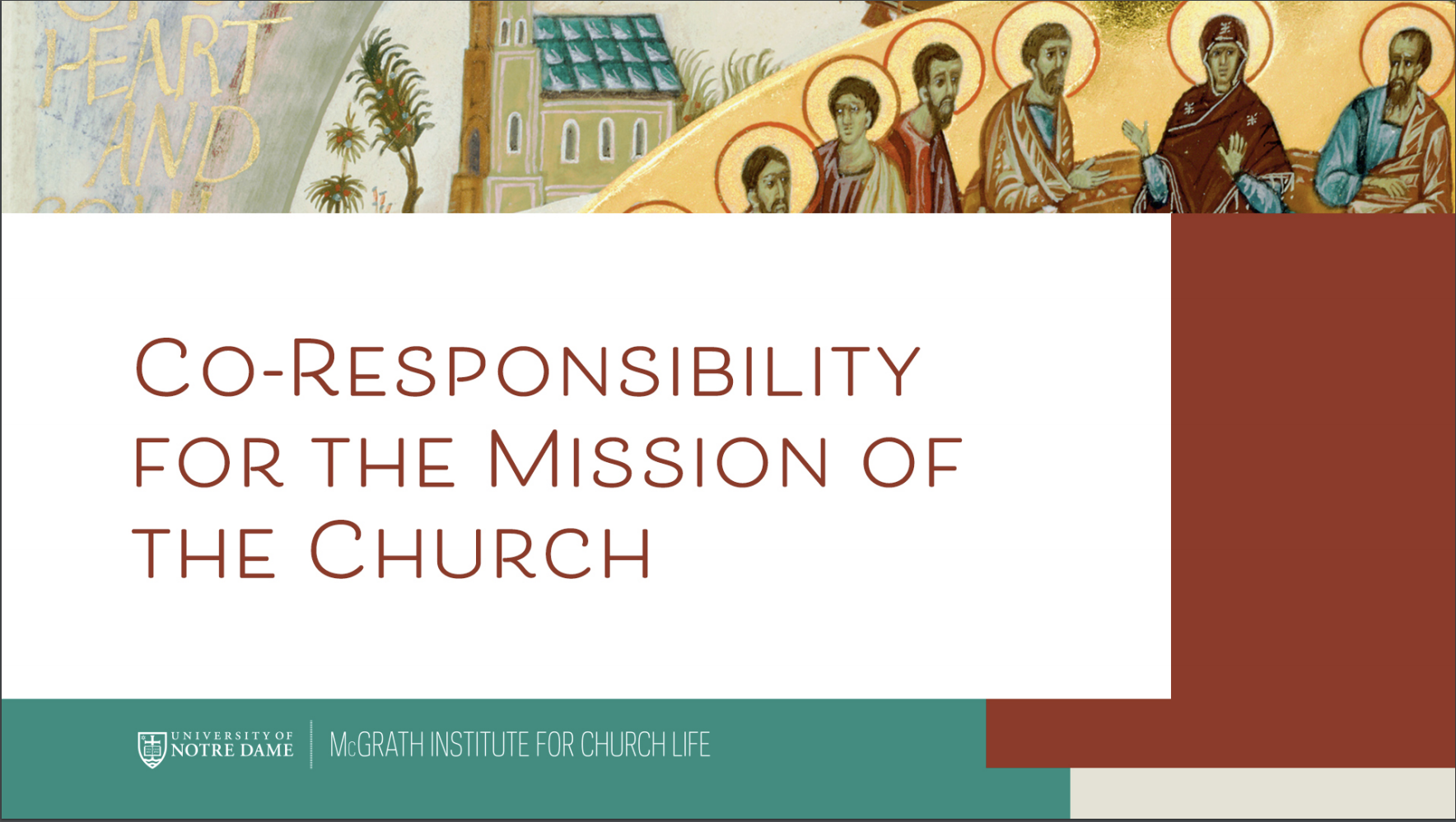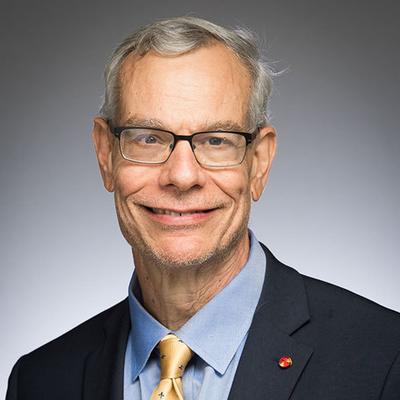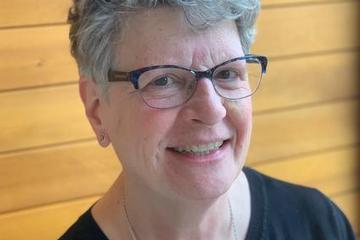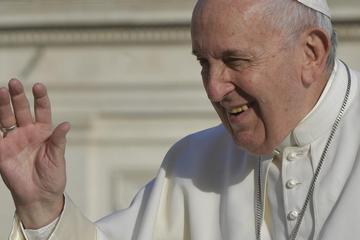
By Laura Ieraci
CHICAGO — The concept of lay ecclesial ministry is not broad enough to “give a full account of lay leadership in the Church” and ironically supports a culture of clericalism that characterizes a pre-Vatican II ecclesiology, said Dr. John Cavadini.
Cavadini, a theology professor and the director of the McGrath Institute for Church Life at the University of Notre Dame, gave the second seminar in the institute’s online “Summer Seminars for Church Life Renewal” June 2. He spoke on the theme, “Co-Responsibility for the Mission of the Church.”
The weekly seminars, which began May 27, were organized to build upon the institute’s “Called and Co-responsible” conference, held in March, and to focus on “how the laity and the clergy might together commit to renewing the life of the Church,” especially amid the new pastoral challenges that emerged due to COVID-19, according to the institute’s website.
“I don’t intend to underestimate the work of lay ecclesial ministers, and we need to support their work better, and their leadership is admirable,” he said.
Nevertheless, lay ecclesial ministry is “construed as a ‘paradigm of collaboration,’” in which a lay person is collaborating in a ministry that is not his or her own, but is “proper to the ordained,” he explained. In this paradigm, “the leadership of lay people is always a subordinate participation” in the leadership of the ordained, he continued.
In this scenario, “you’re not really carving out a space for lay leadership,” he said. “You’re really in some ways just perpetuating clericalism: the mission of the Church belongs primarily to the hierarchy, the Church primarily is the hierarchy, and we collaborate in that mission as lay people.”
However, in 2009, Pope Benedict XVI introduced a new idea in the Church — co-responsibility — to contrast specifically with this “limited idea of ‘collaboration,’” Cavadini explained. The pope “floated” this idea in two “scantly publicized speeches,” he said.
The first was Pope Benedict’s address to the priests of Rome, entitled, “Co-responsible for the Church’s Being in Action: Church Membership and Pastoral Co-responsibility.” The second was his address to Catholic Action in Rome in 2012.
Pope Benedict underlined the need to “improve pastoral structures,” so that the “co-responsibility of all the members of the People of God… is gradually promoted.” Such a shift, he wrote, “demands a change of mindset, particularly concerning lay people. They must no longer be viewed as ‘collaborators’ of the clergy but truly recognized as ‘co-responsible’ for the Church’s being and action.”
While Pope Benedict did not define co-responsibility at length, the context of his two documents indicate that the ordained and non-ordained are co-responsible for the evangelizing mission of the Church by virtue of their baptism and their equal share in the one, true priesthood of Christ, said Cavadini.
Co-responsibility is Benedict’s challenge and invitation to the Church to be formed more deeply in this particular ecclesiology that was envisioned and articulated at the Second Vatican Council, Cavadini said.
The exercise of co-responsibility in the form of lay-initiated and lay-led projects of evangelization would not require permission or a mandate from Church hierarchy, nor would it require the hierarchy’s direct supervision or support, he said. However, these initiatives must always be ordered towards building communion and encounter with Christ in the Eucharist. In this way, co-responsibility cannot be exercised independently of the ordained priesthood, he said.
The spirit of co-responsibility, he added, is not to wait to be asked to engage in the evangelizing mission, but simply to do it. Cavadini offered Dorothy Day, the founder of the Catholic Worker Movement, as an example of co-responsibility.
“No one asked her to do it; she did it. It was her own initiative. She did something even without expecting support from the Church hierarchy,” he said. “What she did built up evangelization and she always maintained communion.”
He urged participants, who asked about how to deal with clergy who do not want lay involvement, to be persistent. Some priests were not formed in this vision of co-responsibility in seminary, he said.
“We’re talking about a change in ecclesial culture,” he said. “These changes don’t happen overnight, but the Lord will help us and we need to persist.”
He said lay people are mistaken to believe that the only way they can lead is to be responsible for decision-making in a parish. He encouraged lay people to use their imagination to envision how they can lead by gathering with fellow parishioners to form a project of evangelization that “doesn’t have to be an official parish ministry.”
The summer series will run until July 28. Learn more and register for upcoming seminars here. https://mcgrath.nd.edu/conferences/academic-pastoral/called-co-responsible-summer-seminars-for-church-life-renewal/
Photos are courtesy of the McGrath Institute



